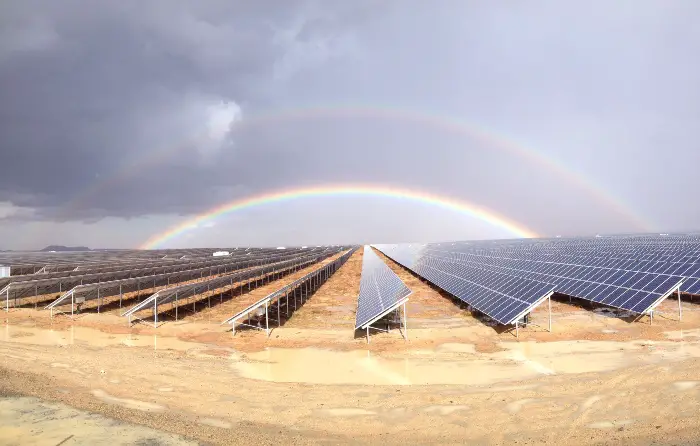Three countries, Ivory Coast, Somalia and Ghana signed up for the International Solar Alliance, on the sidelines of the African Development Bank’s annual meeting held in Gandhinagar, taking the total number of signatories to 31.
It was floated as PM Modi’s initiative to orchestrate the switch to renewable-energy at the Paris climate change conference.India has also set aside $2billion for solar-projects in Africa.
The ISA is a treaty-based intergovernmental organization, involving over 120 countries located between the Tropics of Cancer and Capricorn, receiving abundant sunlight, classified as “sunshine countries”.
Also read:Renewable energy to surpass African energy demand by 2030
The alliance aims at efficiently using their abundant solar energy to reduce dependence on fossil fuels.
The ISA Framework Agreement opened for signature at Marrakech, Morocco in November 2016 and would enter into force on securing 15 ratifications.
25 countries across Africa, the Pacific, South America and Asia, including Ethiopia, Burkina Faso, Brazil, Tuvalu. Cambodia and Bangladesh have so far signed the framework agreement. The ISA framework agreement has further secured six ratifications.
The ISA has already welcomed new signatories from Africa including Djibouti, Ghana and Comoros. India here is looking towards African countries numerical strength in immediately operationalizing the Agreement.
Mauritius and Pacific island states including Nauru and Fiji are further expected to deposit their instruments of ratification soon.India further plans to allocate 20% of its concessional line of credit for Africa to solarprojects.
“The ratification process for the ISA is among the fastest so far, given that usually such legal procedures take 5-6 years. But we are hoping the countries will ratify ISA in another 5-6 months as has also been said by minister Piyush Goyal”, sources stated.
India could derive dual benefits from ISA: it could boost its image as a global climate leader, while also enabling it to reap benefits out of global investments in solar technology.
If India can leverage the backing of about 120 countries, the ISA has the potential to emerge as a powerful negotiating bloc at the global climate change negotiations.

Leave a Reply